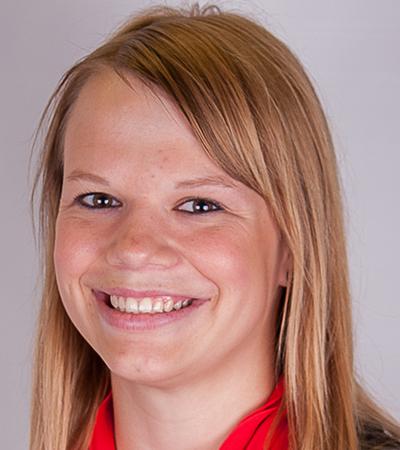
Doerr's Research Published in Energy News Publications
18 Aug 2015
As part of Alissa Doerr's (3L) externship with the Center for Rural Affairs, she analyzed zoning issues as they relate to wind turbine siting in Nebraska and other wind-rich states. The Center released her research as a white paper this summer, and it has been published in numerous energy-related publications including Midwest Energy News, Governors' Wind Energy Coalition and North American Windpower.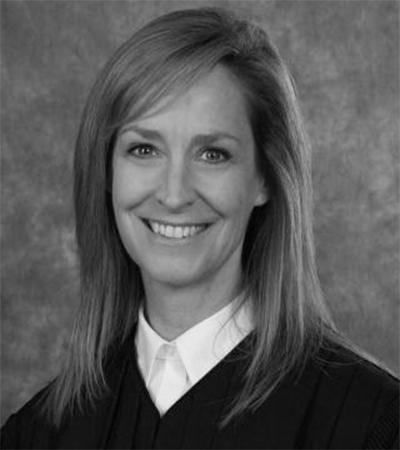
Stacy, '91, Named to the Nebraska Supreme Court
14 Aug 2015
Lancaster County District Judge Stephanie F. Stacy will succeed Justice Kenneth C. Stephan on the Nebraska Supreme Court.
“Judge Stacy’s judicial and legal experience have served the State of Nebraska well,” Gov. Pete Ricketts said in a news release Friday. “Her expertise and judicial temperament will continue to be an asset to the people of Nebraska and now also to our State’s Supreme Court.”
Before being named a district court judge in 2011, Stacy was a partner at Baylor, Evnen, Curtiss, Grimit & Witt, LLP. She also taught trial advocacy and pretrial litigation at the University of Nebraska College of Law, from which she graduated in 1991.
On the district court, Stacy handled felony criminal, civil and domestic cases and appeals from county court and administrative agencies, as well as lawsuits challenging the constitutionality of state laws, election issues and suits against the state and state officials.
Last year, Stacy sided with the three landowners in the path of the proposed Keystone XL pipeline and ruled that a 2012 law improperly bypassed the authority of the Nebraska Public Service Commission by allowing the governor to approve the pipeline route and give TransCanada the power to use eminent domain. Ultimately, the state appealed and the Nebraska Supreme Court upheld the law.
Since February 2015, Stacy also has been one of two judges to preside over the Lancaster County Adult Drug Court. She has received the Exceptional Performance Citation from the Nebraska Defense Counsel Association and been peer nominated to national honoraries including the American Board of Trial Advocates, International Association of Defense Counsel and the Litigation Counsel of America.
Stephan retired July 1. Stacy's appointment marks Ricketts’ first to the Nebraska Supreme Court.
Story via the Lincoln Journal Star.
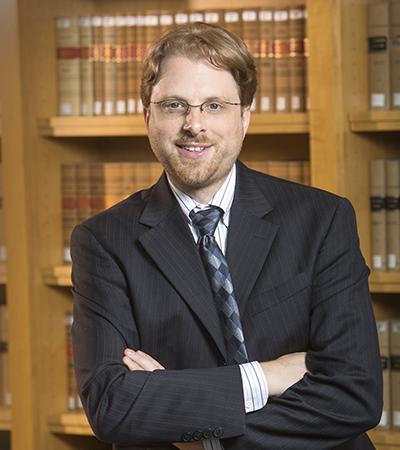
Hurwitz and International Center for Law & Economics Challenge FCC's Open Internet Order
07 Aug 2015
Professor Gus Hurwitz was the primary co-author of an amicus brief filed yesterday in the DC Circuit by the International Center for Law & Economics. In addition to Hurwitz, nine other law & economics scholars helped draft the brief which challenges the FCC's 2015 Open Internet Order and explains why it should be vacated by the court.More information, including a copy of the brief, is available on the International Center for Law & Economics website.
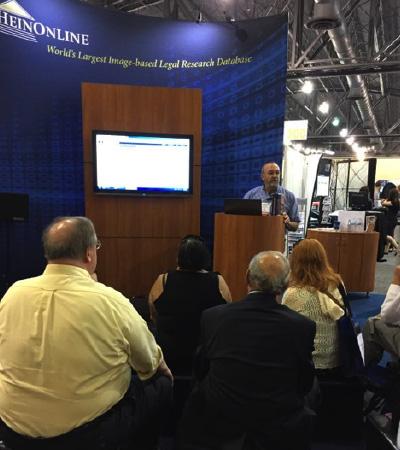
American Association of Law Libraries 2015 Conference Highlights
04 Aug 2015
On July 18-22, the Schmid Law Library librarians attended the 2015 American Association of Law Libraries (AALL) annual meeting in Philadelphia. The librarians who attended, Richard Leiter, Sandy Placzek, Marcia Dority Baker and Stefanie Pearlman hold positions on several national committees and special interest sections.
_____________________________________________________________________________________________
Library Director, Richard Leiter, demonstrated the beta version of a new Hein Online database being developed by the Wm S Hein & Co, the publisher of the 7th edition of his reference book, National Survey of State Laws. The book and database will be released in September 2015.
Photo via @HeinOnline
_____________________________________________________________________________________________
Sandy Placzek, Associate Director and Professor of Law Library, participated in a program on e-books with a New York law firm librarian. Sandy’s remarks focused on the integration of e-books and digital content in academic law libraries. The program, “Strategic Integration of E-books and Digital Content in Law Libraries” was standing room only.
_____________________________________________________________________________________________
Stefanie Pearlman, Professor of Law Library and Reference Librarian finished her term as President of the Animal Law Caucus, and is the incoming Vice-Chair/Chair-Elect of the Social Responsibilities-Special Interest Section.
_____________________________________________________________________________________________
 Photo via @JenWondracek
Photo via @JenWondracek
Marcia Dority Baker, Associate Professor of Law Library and Access Services Librarian, attended the AALL Hackathon: Connecting Legal Information. She was part of the winning team with a finished project; P.Law.G or the Public Law Timeline of the Popular Names Table. The goal of the team’s project was t0 visualize the Popular Names Table by showing the “weight” of a public law by the amount of legislation it has. Marcia also presented at the Cool Tools Café Dive Deep program on using Google Forms.
_____________________________________________________________________________________________
 Photo via @deshrager
Photo via @deshrager
Law Librarian Conversations, a popular radio show/podcast hosted by Richard Leiter, Marcia Dority Baker and Roger Skalbeck (University of Richmond School of Law), produced three live podcasts during the conference. The shows were scheduled at the end of the program day and were intended as daily wrap-ups for the conference. Guests on the show included the presidents of major publishing companies, the Superintendent of Documents at the Government Printing Office (GPO), as well as several past AALL presidents and sitting board members. Episodes can be heard on iTunes or the Blog Talk Radio site.
_____________________________________________________________________________________________
 Photo via Rich Leiter
Photo via Rich Leiter
Schmid Law Library hosted the first get-together for Nebraska Law alumni. Four former students including: Josh Pluta (Texas Tech Law School), Candle Wester (University of South Carolina Law), Melissa Beehner Pinch (K & L Gates, Seattle) and Michael McCarthy (University of Michigan Law School) attended the gatherine. Casey Duncan (new director at University of Wyoming Law School) and Stacy Etheredge (University of West Virginia Law School) were among the other Nebraska Law alumni in attendance.
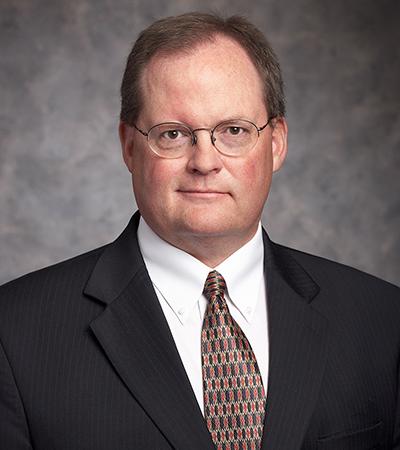
Stevenson, '85, Inducted as Fellow of College of Labor and Employment Lawyers
15 Jul 2015
The College of Labor and Employment Lawyers is proud to announce the election of R.J. (Randy) Stevenson, partner at Baird Holm LLP in Omaha, Nebraska, as a newly elected Fellow. Election as a Fellow is the highest recognition by one's colleagues of sustained, outstanding performance in the profession, exemplifying integrity, dedication and excellence.
"We congratulate Randy, the head of our Labor and Employment practice, on his election as a Fellow of The College," said Baird Holm LLP Managing Partner, Richard E. Putnam. "This is a great honor for Randy and our firm."
The twentieth installation of the Fellows will be held November 7, 2015, in Philadelphia, coincident with the American Bar Association's Labor and Employment Law Section's Continuing Legal Education Conference. With the current installation, the College is represented by more than 1300 members in 45 states, the District of Columbia, Puerto Rico and eight provinces from Canada.
About The College of Labor and Employment Lawyers
The College was established in 1995 through an initiative of the Council of The Section of Labor and Employment Law of the American Bar Association. It operates as a free standing organization recognizing those who, by long and outstanding service, have distinguished themselves as leaders in the field.
About Baird Holm LLP
Baird Holm LLP's integrated team of more than 85 attorneys, licensed in 20 states, is committed to connecting each of its valued clients to the positive outcomes they seek. With extensive and diverse expertise, Baird Holm leverages each attorney's skills to respond efficiently to its clients' local, regional, national and international legal needs.
Rooted by the promise to constantly evolve in anticipation of our clients' rapidly changing needs, Baird Holm has enjoyed steady and measured growth since its founding in 1873. Today, Baird Holm attorneys look to the future as they carry on the legacy created by their visionary founders.
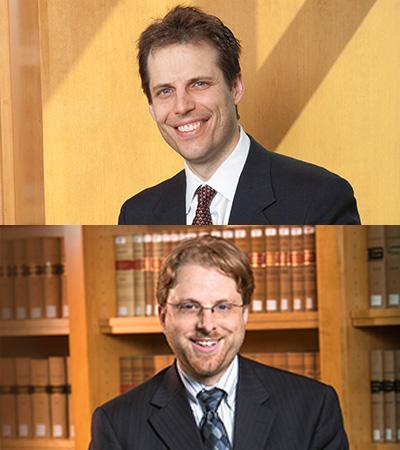
Nebraska Law Professors Part of Supreme Court Decision Discussions
09 Jul 2015
Professors Eric Berger and Justin (Gus) Hurwitz have had a busy couple of weeks. Many of the landmark cases recently decided by the United States Supreme Court are rooted in legal areas in which they are experts. Below is a collection of op-ed articles and media interviews done by these professors:
Eric Berger
- Glossip v. Gross
- Obergefell v. Hodges
- King v. Burwell
- KLIN 1400AM: Drive Time Lincoln
- KOIL 1290 AM: Bob Bruce Show
Justin (Gus) Hurwitz
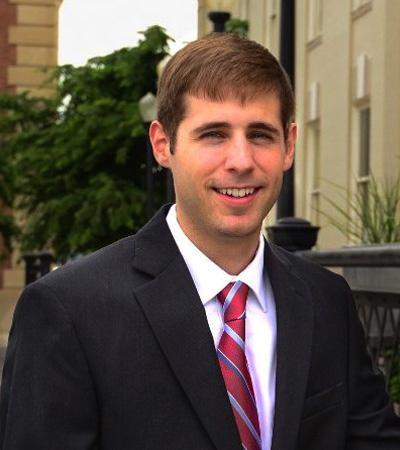
Spahn, '13, Joins Sattler & Bogen as Associate Attorney
01 Jul 2015
Sattler & Bogen, LLP is pleased to announce the addition of an associate attorney. Tyler Spahn attended the UNL College of Law and graduated with an emphasis in civil litigation. During law school, he served as an Executive Editor of the Nebraska Law Review, participated in the Order of the Coif, and clerked for a local law firm assisting with personal injury litigation. After graduation, Tyler served as a judicial clerk for the Hon. William B. Cassel of the Nebraska Supreme Court from 2013–2015.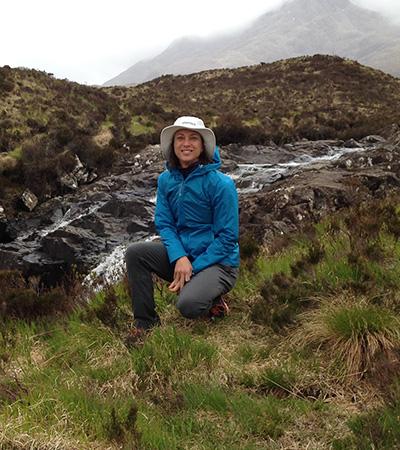
Zellmer Participates in 15th World Water Congress
18 Jun 2015
Professor Sandra Zellmer attended the 15th Word Water Congress in Edinburgh, Scotland as part of the panel discussing "Global challenges in water governance: Vulnerability Assessments."
Professor Zellmer provided a summary of the Congress below:
The World Water Congress, organized by the International Water Resources Association (IWRA), is one of the most important global events in the water field. Held every three years since 1973, the Congress provides a forum for experts in water-related fields from around the world, and allows participants to share experiences and to present new knowledge, research, and developments related to water resources. In this way, the Congress places water-related issues at the forefront of international policy and management.
Just under 1,000 professionals attended the 15th World Water Congress, held in Edinburgh, Scotland, gathering from more than fifty nations and five continents. Additionally, the Congress featured a distinct “law” track with eight panel programs, as well as an additional dozen or so special sessions and side events organized around law/policy topics.
The 15th Congress focused on the opportunities, challenges, and constraints facing global water resources. We call upon our freshwater resources to promote development, reduce poverty, and conserve the environment and hundreds of thousands of plant and animal species, but at both the national and sub-national levels, water is often scarce, polluted, mismanaged, and misallocated. Water management is at a critical juncture in our increasingly complex world. The Congress organizers recognized, “A main handicap has been that water management has often been considered as an end by itself, and not as a means to an end, the end being to achieve overall development, economic prosperity, improvement of quality of life and environmental conservation. In spite of its relevance, water is often not regarded as a key determinant for development, absent from many political agendas.”
The University of Nebraska College of Law and Water for Food Institute enabled me to participate as a delegate at the Congress, where I explored an array of issues related to water as a global resource for economic, social, and environmental development and conservation. Three of the panels at the Congress were of particular interest to me. I spoke on the first.
1. Global Challenges in Water Governance: Vulnerability Assessments. Dr. Roy Middleton of Scottish Water, the publicly owned drinking water supplier in Scotland, served as our moderator and also spoke about sustainable urban drainage systems in the built environment. Mark Wilkinson of the James Hutton Institute in Aberdeen, Scotland, turned our attention to the rural landscape, where intensive farming practices often increase local runoff rates, resulting in water quality issues and local flooding. Dr. Wilkinson explained the potential for agriculture to become part of the solution, rather than being part of the problem, with the support of European Union policies that attempt to reduce flooding and improve water quality through preserving, enhancing, or reinstating natural processes and features. He demonstrated how agricultural Runoff Attenuation Features (RAFs), such as edge of field disconnection bunds, offline ponds, and wetlands, promote the storage, slowing, and infiltration of runoff at the source.
I addressed Floods, Coastal Losses, and the Role of Law in Disaster Management, drawing from my book with co-author Christine A. Klein, Mississippi River Tragedies: A Century of Unnatural Disaster (NYU Press 2014). Storms may well be natural phenomenon, but humans have demonstrated an uncanny ability to exacerbate their own vulnerability to them by shortsighted engineering projects, undue faith in technology, improvident development activities that cause the loss of coastal wetlands and barrier islands, and poor decision-making processes that encourage development in the floodplain. These are often compounded by an array of government incentives, such as subsidized crop and flood insurance. The acknowledgement of our own responsibility for unnatural disasters can lead to blame and finger-pointing, but it can also prod us to confront the consequences of our actions, leading to the knowledge necessary to avoid future disasters. This, in turn, can lead to a liberating sense of possibility and opportunity--melding our own social and economic aspirations with the environmental imperatives of water and waterbodies. If we acknowledge that at least some disasters are unnatural, not uncontrollable "acts of God," then we have a fighting chance at making better laws and better decisions in the future. Potential legal reforms include fine-tuning or eliminating subsidies that create perverse development incentives, redefining landowners' expectations and property rights in coastal zones and floodplains, adjusting our approaches to navigation and channelization of flood-prone rivers, preserving wetlands and barrier islands, and restoring degraded riparian and coastal ecosystems.
2. Water Allocation Among Competing Urban and Agricultural Uses. This session addressed the topic of water markets and the allocation of agricultural and urban water rights, with an eye toward the question: will agricultural production be reshaped in the future by the demand for and supply of scarce water resources? Laura Schroeder and Therese Ure, of Portland, Oregon, assessed several case studies in the Western United States where water was moved out of agriculture production to urban uses. First, California's Imperial Irrigation District faced the problem of scarcity in the face of drought head on by negotiating contracts with its agricultural producers to fallow certain fields, thus leaving water available for urban uses. By contrast, in Nevada, movement to take water from agriculture and restructure river systems modifying federal decrees was seen through federal litigation and modification of delivery contracts. The speakers recognized a clear and present trend in the Western United States to move water out of agriculture to urban and municipal uses, with a definite impact on food and fiber production. They posed the question: at what point will we prioritize agriculture to ensure sustainable food production without increased reliance on imports. They emphasized that cooperation must be prioritized in lieu of spending resources in litigation.
3. Getting the Best Out of Global Water Conventions. The entry into force of the UN Watercourses Convention in August 2014 and the opening up of the UNECE Water Convention to all UN member states mark two major milestones in the evolution of international law relating to transboundary watercourses. This panel assessed how these two global framework instruments can play a critical role in strengthening the equitable and sustainable management of the world’s transboundary waters. It aimed to deepen our understanding of the role and relevance of these conventions, and the benefits of having them both in operation and alongside other existing global legal instruments. Speakers included Ms. Zaki Shubber, UNESCO IHE Delft, Dr. Marian Patrick, Stockholm International Water Institute, Dr. Christina Leb, World Bank, Professor Gabriel Eckstein, Texas A&M University, and Dr. Salman Salman, IWRA Fellow and former Legal Counsel, World Bank.
By Sandra Zellmer, Robert B. Daugherty Professor, Nebraska College of Law
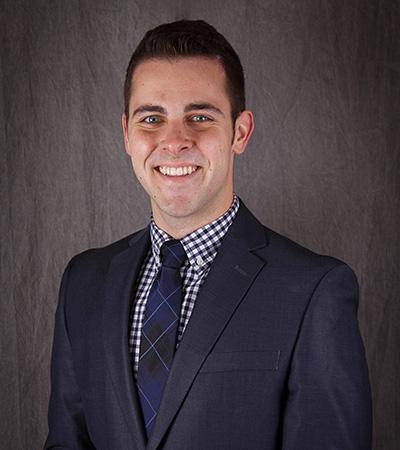
Brooks, '15, Named Scoville Peace Fellow
18 Jun 2015
Taylor Brooks, '15, was named a Scoville Peace Fellow for Fall 2015 by the Herbert Scoville Jr. Peace Fellowship. The fellowship program recognizes outstanding individuals who have a strong desire to work with nonprofit, public-interest organizations addressing peace and security issues. Brooks will work at the Carnegie Endowment for International Peace, contributing to research on cyber arms control, anti-satelitte, and missile defense issues.Brooks recently graduated from Nebraska Law with distincition and a concentration in Space, Cyber and Telecommunications Law. While at Nebraska, Brooks was a member of the Nebraska Law Review, served as the advocacy chair for Allies and Advocates, and wokred at the U.S. Embassy in Bangkok, Thailand, U.S. Strategic Command's University Affiliated Research Center and Nebraska Appleseed.
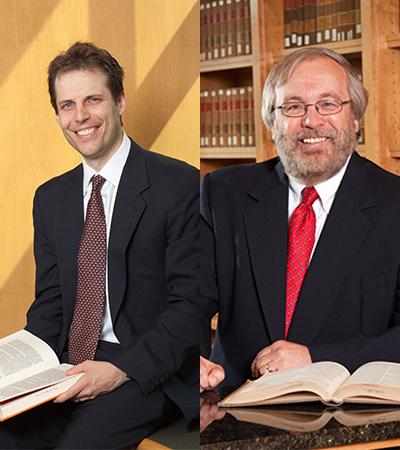
Professors Berger and Duncan Write Death Penalty Repeal Opinion
16 Jun 2015
Constitutional law professors Eric Berger and Richard Duncan submitted an opinion article to the Omaha Wolrd-Herald outling their stance on the Nebraska legislature's repeal of the death penalty. In the article, they point out the expense to the state and make clear that neither believes the program is working.Read the full article in the Omaha World-Hearld.
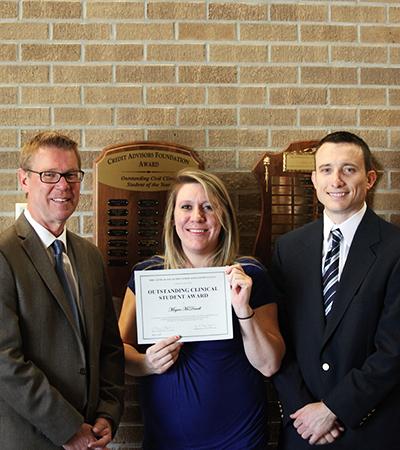
McDowell Receives Clinical Legal Education Association Outstanding Student Award
10 Jun 2015
For her exceptional work as a student attorney in the Nebraska Law Civil Clinical Law Program, Megan McDowell received the Outstanding Student Award presented annually by the Clinical Legal Education Association. Megan was nominated for the award by her supervisors, Professors Kevin Ruser and Ryan Sullivan. Criteria for the award were:
- excellence in field work and client representation
- excellence in the seminar component of the clinical course
- significant contribution to the clinical community
During her time in the Clinic, Megan assisted low-income clients in resolving matters in the area of family law and guardianship, and drafted estate planning documents for senior citizens as part the Clinic’s Advance Directives Clinic project. Following admission to the bar, Megan intends to practice family law with the Lincoln firm Gordon Law, LLC.
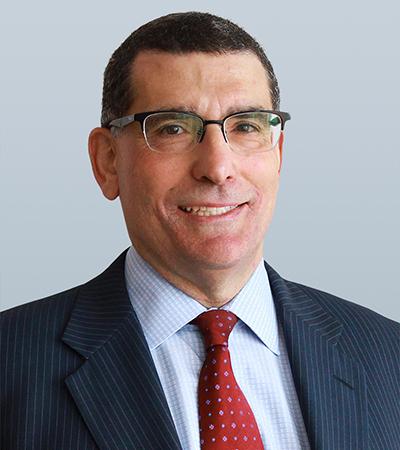
Ojile, '85, Joins Armstrong Teasdale's Litigation Practice
09 Jun 2015
Armstrong Teasdale announces the addition of Bill Ojile, partner, to its Litigation practice group. Ojile is based in the firm’s Denver office.
With more than 25 years of experience, Ojile focuses on resolving difficult legal and policy issues for higher education institutions, telecommunications companies and other entities operating in highly regulated environments.
Ojile has extensive in-house counsel experience, including serving as the general counsel for Valor Telecom, a publicly traded telecommunications carrier and Alta Colleges, Inc, operator of a system of private post-secondary educational institutions. In those roles he developed companies’ strategic direction and compliance programs to help them adhere to laws and regulations. Also, as an in-house counsel and private practitioner, Ojile has defended companies in administrative, state and federal cases.
He earned his J.D. from the University of Nebraska-Lincoln College of Law and B.S. in accounting from the University of Nebraska at Omaha. Ojile is admitted to practice law in Colorado, Minnesota and Nebraska.
About Armstrong Teasdale: With more than 225 lawyers in offices across the United States and China, Armstrong Teasdale LLP has a demonstrable track record of delivering sophisticated legal advice and exceptional service to a dynamic client base. Whether an issue is local or global, practice area specific or industry related, Armstrong Teasdale provides each client with an invaluable combination of legal resources and practical advice in nearly every area of law. The firm is a member of Lex Mundi, a global association of 160 independent law firms with locations in more than 100 countries, and the United States Law Firm Group, a network of 18 law firms headquartered in major U.S. cities. Armstrong Teasdale is listed in the Am Law 200, published by The American Lawyer, and the NLJ 250, published by The National Law Journal. For more information, please visitwww.armstrongteasdale.com.
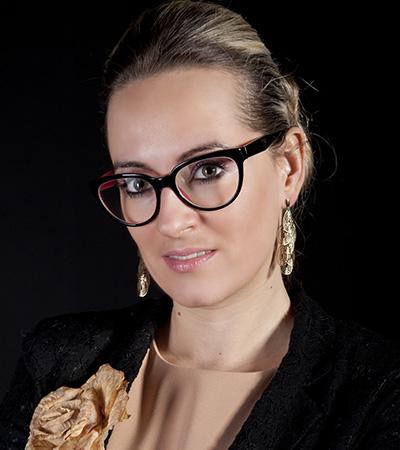
Nebraska Law to Host Visiting Researcher
09 Jun 2015
The University of Nebraska College of Law will host Dr. Marlena Jankowska in the month of June.Dr. Jankowska is an assistant professor in the faculty of Law and Administration at the University of Silesia in Katowice in Poland, as well as an experienced attorney specializing in intellectual property, new technologies and geoinformation law. She will visit the University of Nebraska College of Law June 10 through July 11, 2015 as a Visiting Researcher in order to further research legal issues concerning spatial data.
Dr. Jankowska holds an extensive publication record in the fields of civil law, copyright law, energy law, geoinformation law, commercial law and public procurement law. Recently she edited and co-authored the book Geoinformaton. Law and Practice (IusPublicum, Warsaw 2014) together with many prominent researchers and experts in the field. She defended her PhD dissertation in Intellectual Property Law, entitled Author and the Right of Attribution, in 2010 at the University of Silesia in Katowice, after which it was published as a book under the same title by Wolters Kluwer Poland in 2011 (555 p.). She has been guest lecturer at several institutions, namely the University of Hertfordshire (June 2013), Nottingham Law School at Nottingham Trent University (February 2014) and University of Nantes (March 2015) and has carried out research at Max Planck Institute in Munich, ALS Library in London and the library of WIPO in Geneva.
Currently, Dr. Jankowska is preparing her book on copyright issues concerning maps. Significant changes in the nature of Spatial Data Infrastructure (SDI) have created new legal uncertainties that have not yet received sufficient attention from the legal profession in Europe. The practice of using SDI has nevertheless shown that there are many legal issues worth noting, especially concerning intellectual property rights. On that subject, what we have to confront in the doctrine of copyright law is the balance between the competing principles of accessibility of public information against the principles of copyright protection. At the same time, the technological challenge stimulates doubts about the copyright protection even more, as it is not certain whether SDIs are copyrightable at all. As there are many standpoints in that matter, it has to be answered whether U.S. and European legal regulations, as well as the technical framework of creating the digital data and databases (e.g. the ISO standards), can strip away the creative element from the work. It should also be noted that the current legal standpoint on maps is a vague one that leaves many unanswered questions. Should we, for example, assume that an idea may only be copyrightable if it is individualized, creative and has been articulated in some form? Do we need to re-imagine the relationship between factual content (e.g. geographical information) and a creative form of expression (e.g. a cartographic map)? Additional challenges emerge when we consider the relationship of the above to space law.
Dr. Jankowska would like to express her gratitude to Dr. Susan Poser, the Dean of University of Nebraska College of Law, and Professor Frans von der Dunk, Harvey & Susan Perlman Alumni Othmer Professor of Space Law, for this opportunity to research legal spatial data issues at the Nebraska Law.
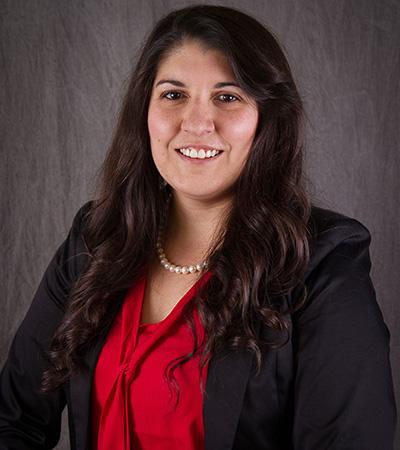
McLarty Receives National Association of Women Lawyers 2015 Outstanding Law Student Award
03 Jun 2015
Brianna McLarty, '15, received the University of Nebraska nomination for the National Association of Women Lawyers (NAWL) 2015 Outstanding Law Student Award. McLarty will be featured in an upcoming issues of the Women Lawyers Journal.The NAWL award recognizes graduating third-year law students who have met the following criteria:
- Contributes to the advancement of women in society
- Promotes issues and concerns of women in the legal profession
- Exhibits motivation, tenacity, and enthusiasm
- Demonstrates high academic achievement
- Earns faculty and administrative respect
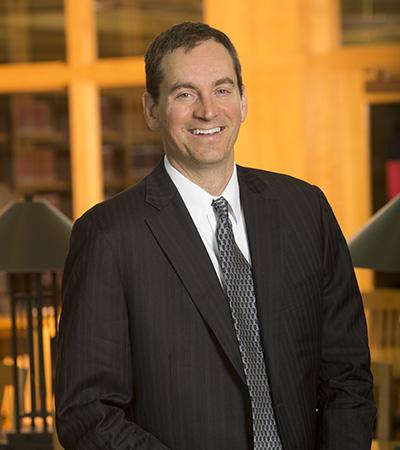
Schaefer and Burnett Sign Letters Read into Congressional Record
26 May 2015
On May 21, the House of Representatives passed four space bills, including HR 1508 – the Space Resource and Utilization Act (HR 1508). During committee consideration of the bill, a letter by Professor Joanne Gabrynowicz claimed portions of the Bill violated US obligations under the Outer Space Treaty, specifically Art. II. In response, prior to full House consideration of the bill, Nebraska Law Professor Matthew Schaefer, Nebraska Law Space, Cyber and Telecommunications Advisory Board Vice-Chair and Adjunct Professor of Law Dennis Burnett, and three others submitted letters rejecting that claim and providing analysis of why HR1508 (and its companion bill S. 976) is fully consistent with US international obligations under the Outer Space Treaty. The letters were quoted on the floor by Rep. Posey (R-WA) and placed in the Congressional Record on May 21, 2015 at page H3518 et seq. Another bill passed by the House that day has a provision that would extend the promise of government indemnification for third-party liability claims exceeding the Maximum Probable Loss until 2025. Professor Schaefer’s White Paper for Nebraska Law’s Seventh Annual DC Conference (Nov. 2013) and his accompanying article in the Berkeley J. of International Law recommended a long-term extension of the promise of government indemnification if a pure liability cap was not enacted.
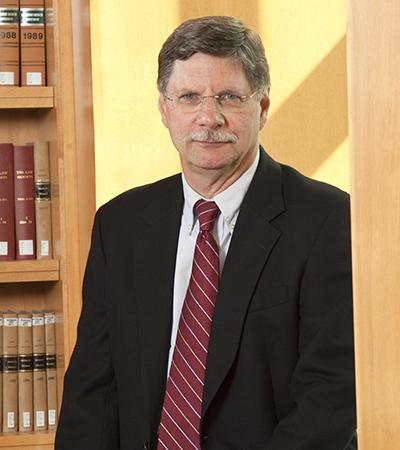
Denicola Featured in Intellectual Property Essay
26 May 2015
Three articles written by Professor Rob Denicola were featured in Lost Classics of Intellectual Property, an essay written by University of Pittsburgh professor Michael Madison. The essay was written to provide information to junior scholars about the most important intellectual property articles that were written before 1985.In total, 73 articles made the list. Among them were one trademark and two copyright articles written by Denicola.
- Copyright and Free Speech: Constitutional Limitations on the Protection of Expression, 67 CAL. L. REV. 283 (1979)
- Applied Art and Industrial Design: A Suggested Approach to Copyright in Useful Articles, 67 MINN. L. REV. 707 (1983)
- Trademarks as Speech: Constitutional Implications of the Emerging Rationales for the Protection of Trade Symbols, 1982 WIS. L. REV. 158
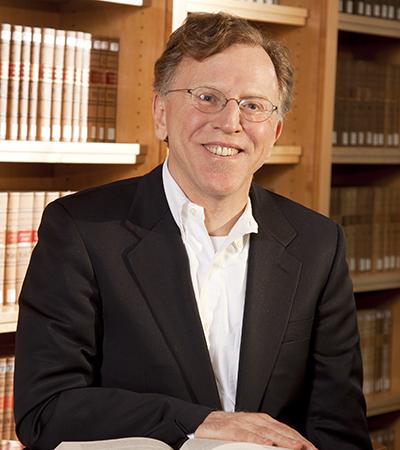
Willborn Publishes Yearbook of Comparative Labour Law Scholarship 2014
21 May 2015
Professor Steven Willborn's book, Yearbook of Comparative Labour Law Scholarship 2014, was released this week. The book brings together a wide range of cutting-edge research and analysis on labour and employment law themes from around the world, chosen from the pages of the member journals of the International Association of Labour Law Journals. A collaborative project of that Association and the International Society of Labour and Social Security Law, this edition of the Yearbook — the inaugural volume in an annual series — spans contributions from eleven countries across five continents. The contributions deal with such diverse subjects as labour trafficking in China, the impact of austerity measures on labour law systems within the EU, so-called "right to work" initiatives in Canada, freedom of movement for migrant workers in the ASEAN states, recent trajectories in the framework of Australia’s labour law, and many others. Written by renowned scholars in the field, the papers in the Yearbook reflect the critical and growing importance of comparative and international perspectives on labour and employment law in an era of globalization.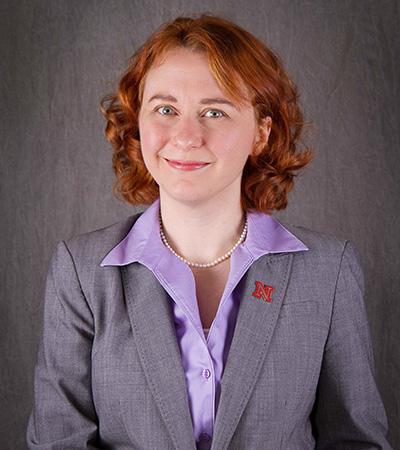
Joseph Awarded Koley Jessen Entrepreneurship Award
20 May 2015
The Entrepreneurship Legal Clinic Board of Advisors named Katie Joseph the 2015 recipient of the Koley Jessen Entrepreneurship Award.Joseph graduated in May with the Class of 2015. During her time at Nebraska Law, Joseph served on the Faculty Grade Committee and Faculty Lectureship Committe; was the managing editor of the Nebraska Law Review; president of both the Women's Law Caucus, and The Defense Research Institute; participated in the Client Counseling Competition winning the national championship and placing second in the international competition; and spent a semester as a student attorney in the Entrepreneurship Legal Clinic.
The Koley Jessen Entrepreneurship Award was established to recognize Entrepreneurship Legal Clinic students who have demonstrated exceptional legal skills, provided outstanding service to clients and furthered the mission of the Clinic. The firm was founded in 1988 with a vision of creating an environment that would foster trust and teamwork. Through the years, their guiding principles of integrity, client focus, and integrity have created the environment they envisioned years ago. Don Swanson, a partner in that firm, was instrumental in creating the endowed fund for this award.
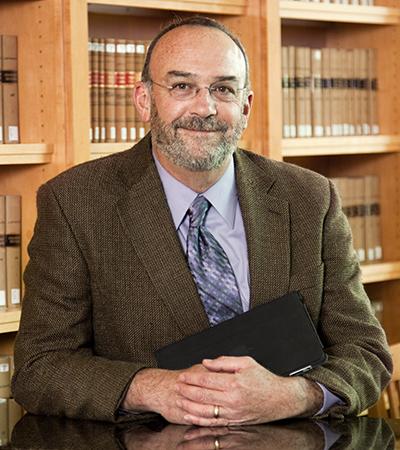
Leiter Contributed Chapter to Book for Academic Law Librarians
18 May 2015
Professor Richard Leiter contributed the chapter, "Law Librarians' Roles in Modern Law Libraries," to Academic Law Library Director Perspectives: Case Studies and Insights, a book edited by Michele Wu, Professor & Law Library Director at Georgetown University.The chapter discusses the way that the shift from print to electronic collections and materials is changing many of the ways that libraries do things, but doesn’t fundamentally change what we do. The chapter highlights changes to management, research instruction and reference services; and, concludes that in many important respects, the more things change, the more they remain the same.
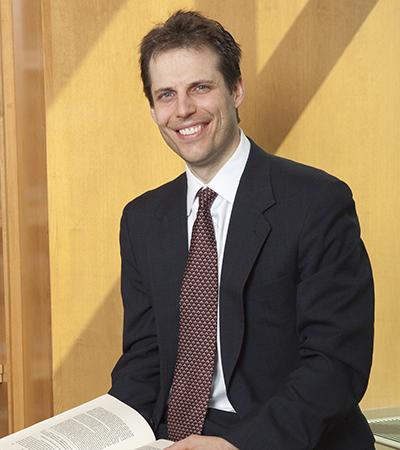
Berger Discusses Nebraska Death Penalty Law as Nebraska Legislature Debates
18 May 2015
On Friday, the Nebraska Legislature debated LB 268, a death penalty repeal bill. Professor Eric Berger attended the debate, and did interviews with several media outlets.
NBC News: 'Boys Don't Cry' Mom: Keep Nebraska's death Penalty
Lincoln Journal Star: Ricketts: state has bought death penalty drugs
Omaha World Hearld: Nebraska's death penalty teeters toward repeal as final vote looms